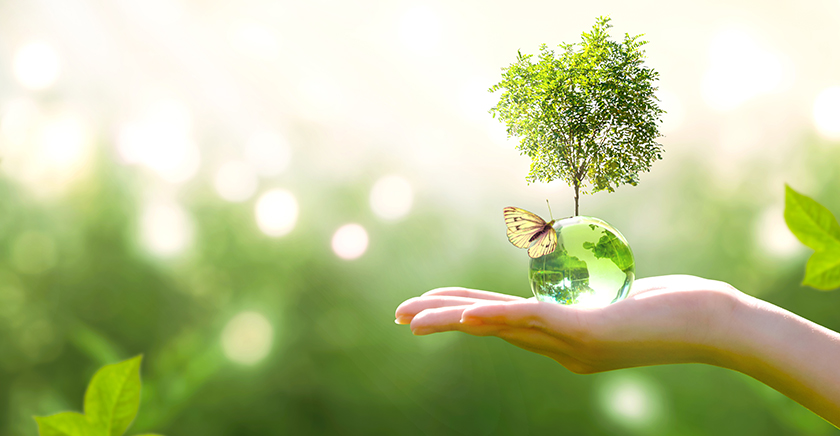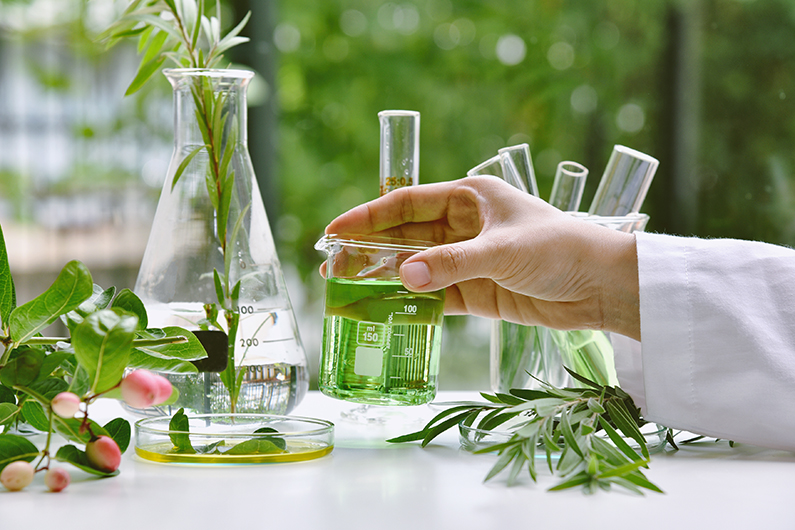More news
- PPG recognised for sustainability progress by FTSE4Good for sixth consecutive year
- Focus on industrial: Powering the energy industry during extreme heat
- Focus on powder coatings: The coatings industry’s transition to PFAS/PTFE-free solut...
- Birla Carbon Plants in USA, Canada, and Spain secure ISCC PLUS Certification
- Songwon awarded platinum level by EcoVadis for its sustainability achievements

Chinese philosopher Lao Tzu once said that “a journey of a thousand miles begins with a single step.” At iGM Resins, sustainability has been a key focus throughout our organisation for many years, not because it was popular but rather because it was and continues to be the right thing to do. To achieve our goals to reduce our carbon footprint and be a leader in sustainable manufacturing processes, we realised we needed to do more.
In 2021, we formalised our commitment with the introduction of our Go Grow Green strategy. This three-pillar approach reflects our desire to deliver excellence to our customers by developing and manufacturing innovative, integrated, and environmentally-friendly solutions, i.e., the “Green” component of our sustainability strategy.
A vision of sustainability
Each of our global team members is committed to our purpose: ”We Enable the Transformation of Light for a Better Future.” We continually challenge ourselves to actively pursue sustainability goals that will strengthen our position as an environmentally and socially responsible industry leader.
Our ‘Go Grow Green’ strategy was communicated to our stakeholders in 2021 along with our goal to be on the cutting edge of sustainable leadership in the energy curing industry by 2030.
To support this aggressive, yet achievable goal, we have also:
- Joined the United Nations Global Compact initiative, a voluntary leadership platform for the development, implementation, and disclosure of responsible business practices;
- Aligned with SBTi to do our part in the reduction of emissions per established, science-based targets;
- Evaluated and continually monitor our sustainability progress through the targets set by Ecovadis.

Creating a sustainable economy
Sustainability goals are no longer an internally focused initiative. Their “nice to have” status is now a “must-have” and organisations are being held accountable for their efforts. Because of this, iGM Resins launched our first Corporate Sustainability Report to internal stakeholders in 2022 and then publicly shared this information in 2023. The report outlines our commitment and describes our specific actions that are aligned with the United Nations Sustainability Goal #12 (Ensure sustainable consumption and production patterns) and #13 (Take urgent action to combat climate change and its impacts). It also reflects our commitment to other SDG’s, including Labor and Human Rights and Ethics as guided by the recommendations from EcoVadis.
Narrowing our focus to these two important goals will drive solutions that provide opportunities for our team to develop processes and products that will improve resource efficiency, reduce waste and pollution and shape a new circular and sustainable economy.
A critical part of any process or product improvement process begins with a comprehensive analysis of the problem you are seeking to solve. Without this, you risk pursuing an incomplete or ineffective solution. Asking important questions, identifying potential roadblocks and reviewing both the challenges and opportunities are just a few of the steps we took to outline the scope of this important work.
Taking steps to reduce our carbon footprint
In partnership with the climate change experts at South Pole, we annually review the environmental impact of our entire organisation (Corporate Carbon Footprint). This includes:
- Evaluating our emissions status from cradle to gate;
- Identifying current strengths and areas of improvement of CO2 emissions;
- Establishing long-term goals to reduce climate impact;
- Discussing the support of climate projects;
- Being a more responsible, sustainable, and competitive organisation.
With these respective data points in hand, we have focused our efforts on two specific areas: purchased goods and services and district heating. It’s worth noting that we’ve selected these two areas for our efforts due to their significant impact on our global footprint. Our team is monitoring the energy usage of electricity and heating, our manufacturing processes and any refrigerant issues.
Additionally, we are developing climate action plans that will cut emissions and adapt to climate impacts. Immediate and deep reductions in emissions are needed across all sectors to move from a tipping point headed to climate calamity to a turning point for a sustainable future.
Out of all the actions taken, one of them is the development of our innovative sustainable brand, PureLine™ which is composed of bio-based products including PureOmer™, energy curing resins and PureVadd™, paint and coatings additives. The PureLine™ brand consists of a variety of solutions that will benefit our clients and the planet by:
- Improving the carbon footprint of our products with the use of sustainable raw materials. Bio-based products are derived from renewable resources, such as plants and biomass. The production of these materials often involves lower carbon emissions compared to traditional petrochemical-based products.
- Reducing waste and energy consumption through the responsible use of our planet’s valuable resources. Bio-based products often release fewer pollutants during their production and use, contributing to cleaner air and water.
- reducing the dependence on finite fossil fuels, promoting long-term sustainability and energy security.
In addition to these activities, we are continually seeking ways to reduce our environmental impact and support our customers in achieving their sustainability journeys.
READ MORE:
The birth of Life Cycle Assessments
Strategy alone will not get the job done. Our ambitions can only be accomplished when they are combined with a specific set of actions that guide the collaboration of team members in their work. Ensuring that these are identified and that they follow guiding principles is key to any successful transformation.
Our global team is currently dedicated to enhancing the manufacturing processes for our energy curing solutions. It takes resources and people working together with common goals to move the needle. Yet, sometimes, it also takes a willingness to step out of your comfort zone and try something new.
This ambitious step, a first for iGM Resins and the photoinitiator industry, resulted in the launch of Life Cycle Assessments (LCA). An LCA is a detailed report that assesses the environmental impact of products from cradle to gate. We chose to kick off this project with our Photoinitiators products and we are proud to announce that we have finalised a Life Cycle Analysis (LCA) for three photoinitiators: Omnirad 184, Omnirad 1173 and Omnirad 819, all of which are manufactured at our facility in Mortara, Italy. This was quite challenging as Photoinitiators have a complex chemistry and intricate production processes.
This comprehensive evaluation included a thorough analysis of the Photoinitiator products but also several important factors, such as:
- Individual production locations;
- Supply chain components;
- Raw materials selection;
- Transportation options.
To ensure that our solutions and responsible manufacturing practices would meet current and future regulatory requirements, we also followed International Relevant Standards: ISO 14040 and ISO 14044, and EN 15804. Because of the reliability and trustworthiness of these standards, our customers can be confident in the results of our Life Cycle Analysis.
We examined every aspect of the product along with each step in its production journey, so that data-driven decisions could be made. With this critical information in hand, we identified the areas where we can improve our sustainability performance and collaborate with our suppliers and customers to reduce the environmental impact of Photoinitiators.
READ MORE:
Special report: Regulators cracking down on greenwashing worldwide
Our future is green
The Corporate Sustainability Reporting Directive (CSRD), part of the Green Deal, aims to create a truly sustainable economy in the European Union. The measures go far beyond reporting: From strategy and policies to performance management, technology, and controls implementation to change management and audit readiness. Furthermore, implications entail decarbonisation actions and implementing due diligence processes. iGM Resins established a task force that is focused on ESG/CSRD to prepare for these reporting requirements.
With a mandate from the EU for all large companies to report on their sustainability goals and progress starting in 2025, we believe that our efforts towards this directive, along with the implementation of LCA will enable us to not only meet but exceed these requirements.
We continue to establish and fine-tune relevant measures by setting achievable targets for emissions reduction within the prescribed timeframes. iGM Resins has a diverse team of talent around the globe that is committed to our vision. It is their innovative contributions driven by and measured with specific sustainability targets that have enabled us to jumpstart our sustainability plans and be able to achieve all we envision.
Our commitment to sustainability is an opportunity to grow together alongside our valued team members, clients, community and other organisations who share the collective commitment to create and be an integral part of addressing the sustainability challenges facing our industry. Together, we can facilitate the creation of long-term partnerships that will preserve and protect our planet for future generations.







